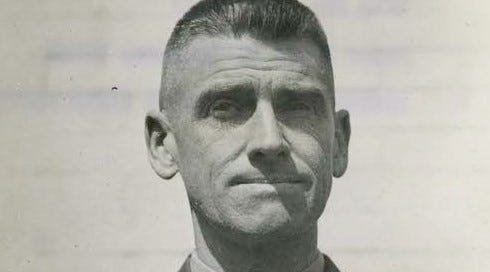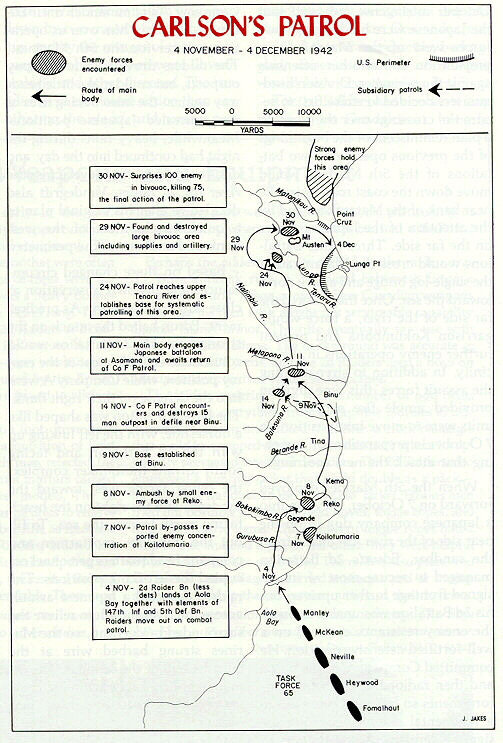Lt. Col. Evans Carlson and The Long Patrol
On the afternoon of Dec. 4, 1942, the 2nd Marine Raider Battalion under the command of Lt. Col. Evans F. Carlson rejoined Allied forces on Guadalcanal after nearly a month of waging what one correspondent called a "private war" against the Japanese.
The effort would come to be known as The Long Patrol, and was recognized immediately as an indicator of the Marines' ability to adapt to their conditions and use the enemy's preferred tactics against them.
Correspondents got the rundown on the patrol in interviews Dec. 6 and 7 with Carlson and Maj. Gen. Alexander Vandegrift. A United Press story published Dec. 11 and likely written by Charles P. Arnot set the scene this way:
Under lean, sun-tanned Lt. Col. Evans F. Carlson, 47, Plymouth, Conn., who led the commando-like Marine raid on Makin Island Aug. 17, the Marines conducted their operations deep in enemy country, wading rivers, hacking their way with knives through dense jungle undergrowth and living largely on rice, bacon, raisins and tea.
Carlson told how his men had gone through one of the longest-sustained guerrilla operations:
"We started on a 48-hour mission and wound up by remaining one month. The men had to be self-reliant and resourceful. We traveled light and fast. Each man cooked his own food. We had no blankets, so at night we cut boughs from the trees and gathered leaves to make beds."
Contemporary reports estimated Carlson's raiders killed between 350 and 400 Japanese soldiers, with only "slight" casualties of their own. Later accounts put the Japanese dead at 488, compared to just 16 dead and 18 wounded among Carlson's approximately 700 Marines and native scouts.
The true cost to the Marines was much worse, as more than 200 were incapacitated to various degrees by malaria and other illnesses. That wasn't mentioned in reports at the time, which focused on the positives.
Writing from Guadalcanal in a piece datelined Dec. 7, Marine combat correspondent Sgt. James W. Hurlbut celebrated the techniques acquired and applied in months of fighting on the island:
The biggest lesson the Marines learned is the value of the small operation -- the small patrols that penetrate deep into the heart of the enemy territory, scouting out positions, destroying food and ammunition supplies and ambushing enemy troops. ...
The Japanese are good, but the Marines are better. ... The Marines learned to move through the bush almost as silently as native scouts. They learned to travel light and sustain themselves in the jungle and to creep up on an enemy bivouac without being detected.
And they love it. There is never a dearth of volunteers for a patrol mission.
The 2nd Raiders earned a unit citation for their work on The Long Patrol, and Carlson was awarded his third Navy Cross. He was later wounded on Saipan and died in 1947 at age 51, having spent virtually all of his adult life in the U.S. Army and Marine Corps.





